News
Elon Musk says human brains need to merge with AI to stay competitive with machines
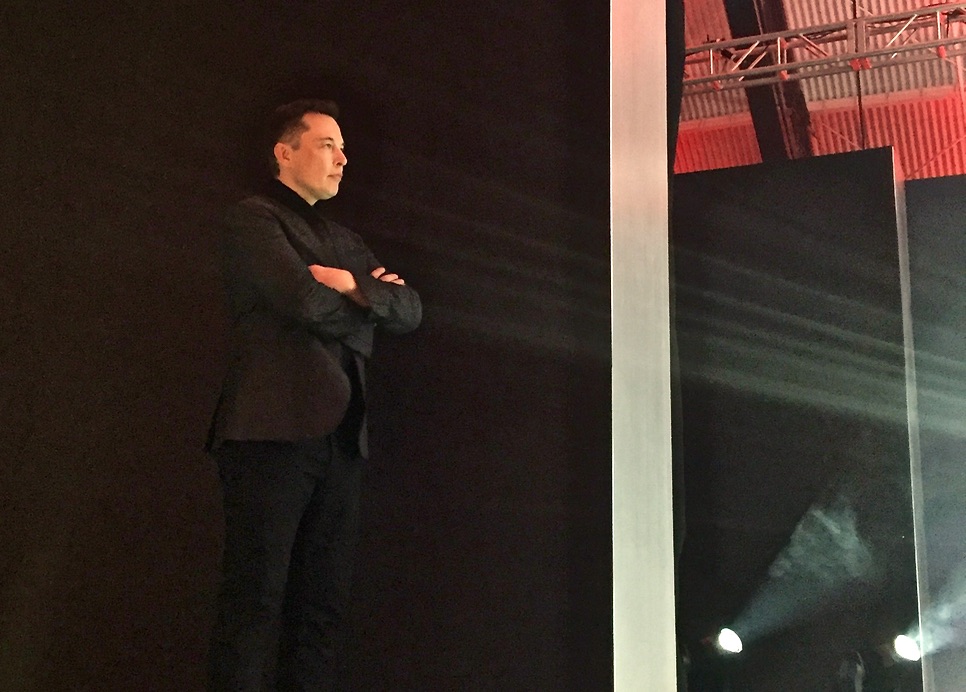
If we want to avoid becoming redundant with the artificial intelligence that is slowly surrounding us, we must merge with machines to stay relevant. That’s one of the messages that Tesla CEO Elon Musk shared at the World Government Summit in Dubai this week, which brings together prominent international thought leaders who dialogue about the future of governments to improve the lives of citizens worldwide.
“Over time I think we will probably see a closer merger of biological intelligence and digital intelligence. It’s mostly about the bandwidth, the speed of the connection between your brain and the digital version of yourself, particularly output,” Musk outlined to the leaders from 139 nations as he spoke during day two of the Summit.
What Musk is referring to here is often called “transhumanism,” or an enhancement of humanity’s capabilities through science and technology. To a certain degree, transhumanism is a daily reality for many people. We keep iPhones, tablets, and laptops on our persons now in a way that was rare a decade ago. So, too, do brain-computer interfaces assist individuals with disabilities, like enabling communication for persons with traumatic brain injuries or elevating motor control for patients with paralysis. In these cases, the brain via implanted electrodes signals and translates a motion command for a robot or cursor.
Musk adheres to the idea that humans need to harness and integrate that processing power, rather than keep it exterior. He analogized how we type as a way to communicate at the rate of 10 bits per second in comparison to a computer’s trillion bits per second. “Some high bandwidth interface to the brain will be something that helps achieve a symbiosis between human and machine intelligence and maybe solves the control problem and the usefulness problem,” Musk continued. These problems of “control” and “usefulness” can alleviate a future scenario in which, as artificial intelligence becomes more sophisticated, it could lead to mass unemployment. Suggesting that the categories of jobs that a robot can’t do better than humans will become fewer and fewer, Musk insisted that, to add value to the economy, we must augment our capabilities through this combination of biological and machine intelligence.
The risk if we fail to do so would be to become “house cats” to artificial intelligence, he says. Musk describes how he’s working on an injectable, mesh-like “neural lace” that fits on our brains to give them digital computing capabilities. These would allow swifter brain-machine interfaces and direct, nearly instantaneous interactions between our brains and external devices. What seems rather futuristic now would create neuroprosthetics for telepathic communication, additional memory, or sensory enhancement for night vision, as examples.
Musk also warned governments around the world to be alert to artificial intelligence developments and to closely monitor them, or else what emerges could threaten the public. He indicated that a close watch on the progress of artificial intelligence and how it is adopted across nations is necessary. “We need to be very careful about how we adopt AI, and make sure researchers don’t get carried away, because sometimes they get so engrossed in their work that they don’t realize the ramifications of what they’re doing,” said Musk. “I think it’s important for public safety that governments keep a close eye on AI and make sure it doesn’t represent a danger to the public.”
Sources: Wired, The Guardian
News
Tesla driver walks away from major accident with minor injuries
The driver sustained only minor injuries, and the exact cause of the crash remains under investigation.
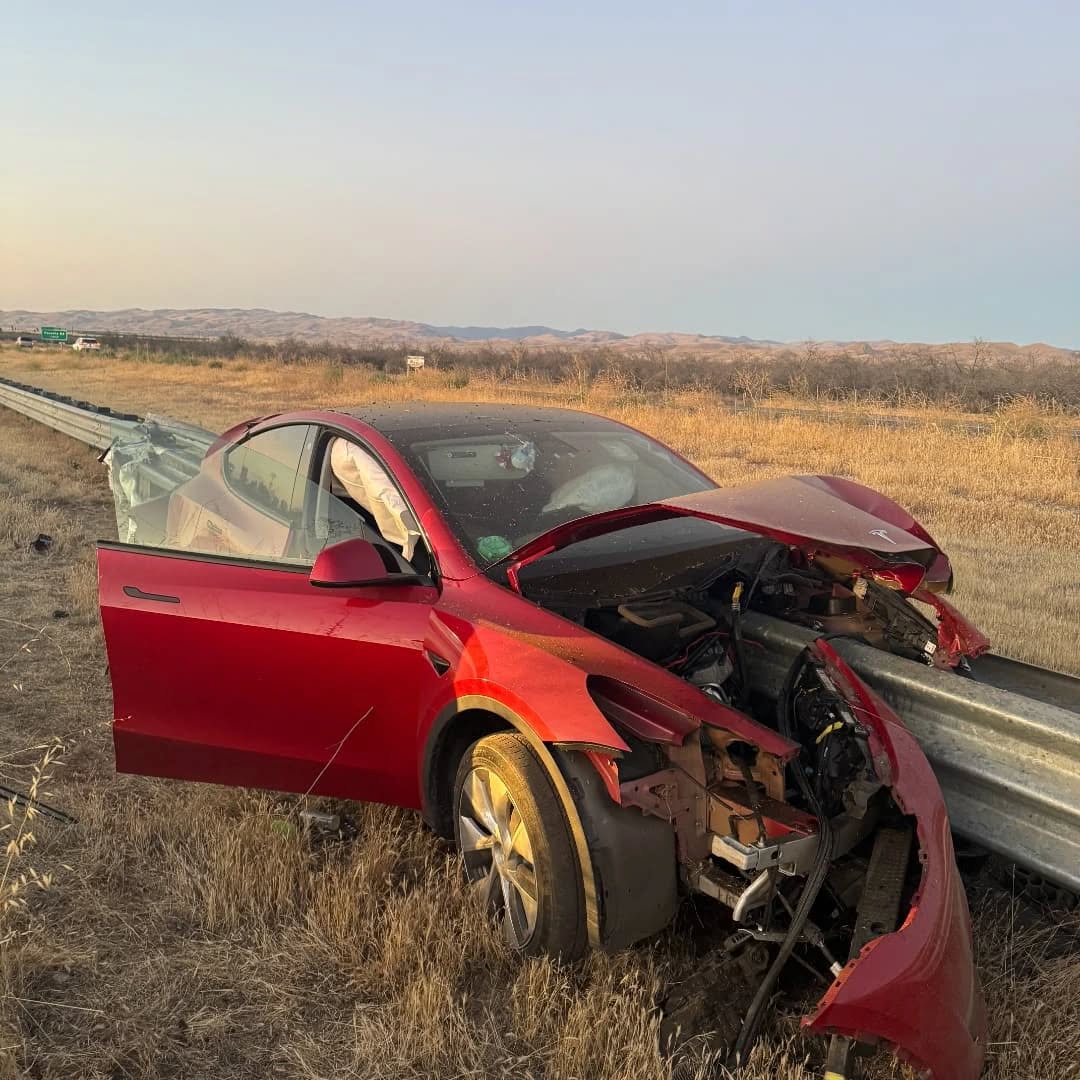
The driver of a Tesla Model Y survived and walked away from a harrowing accident on Monday in California, only sustaining minor injuries despite the vehicle being impaled by a guardrail.
On Monday morning around 4:34 a.m., the Los Banos division of the California Highway Patrol (CHP) responded to the accident on I-5 near Panoche Road, involving a 23-year-old in a Tesla Model Y. According to a post on social media, the driver veered off the road for unknown reasons in the northbound lane, before crashing directly into the guardrail and impaling the vehicle.
You can read the full message and photos from Los Banos CHP below, as were shared in a Facebook post on Monday afternoon.
This morning a Tesla model y was traveling in the #1 northbound lane of I-5 north of Panoche Rd. For unknown reasons driver allowed V-1 to veer off the roadway, travel through a dirt center divide, and crashed into the fixed metal guardrail. Lucky for the driver he only sustained minor injuries and was able to walk away. Driving a vehicle requires 100% attention to the road. Avoid distractions and focus on driving.
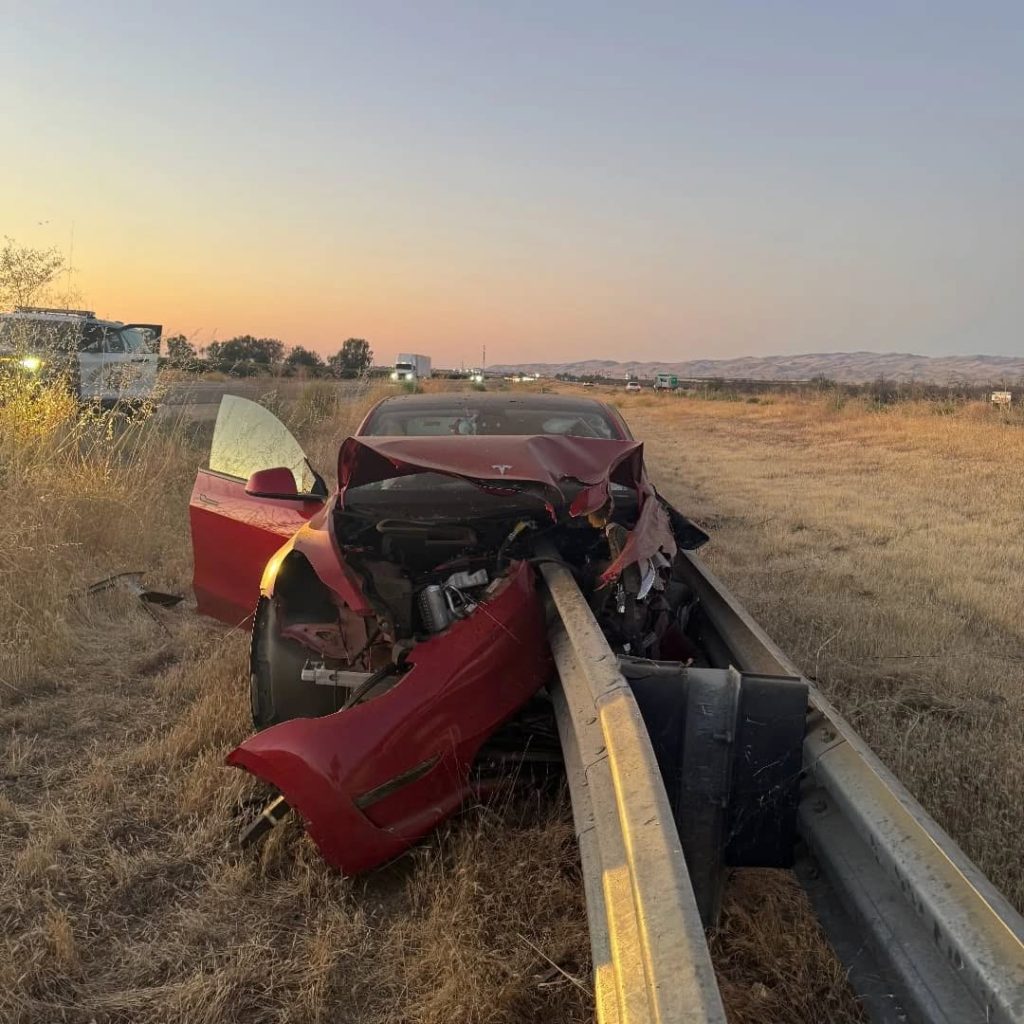
Credit: CHP Los Banos (via Facebook)
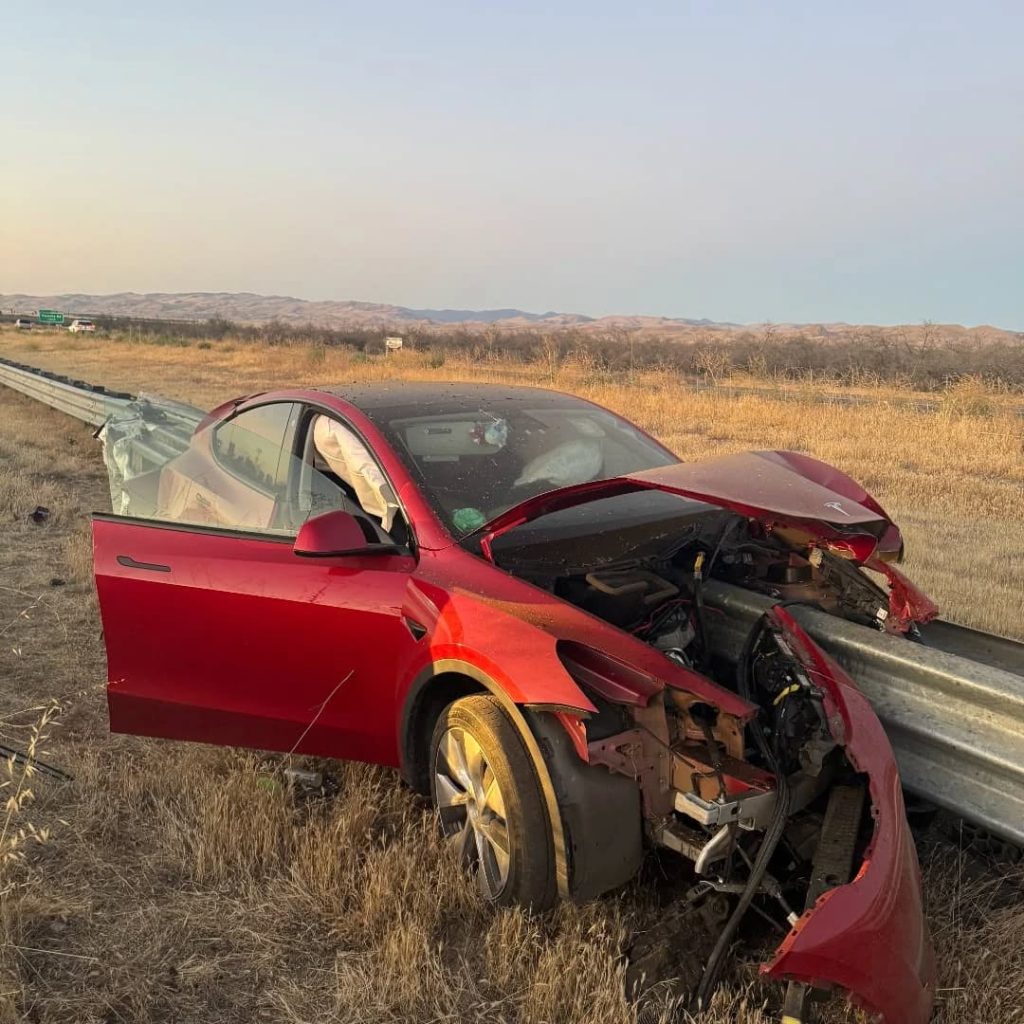
Credit: CHP Los Banos (via Facebook)
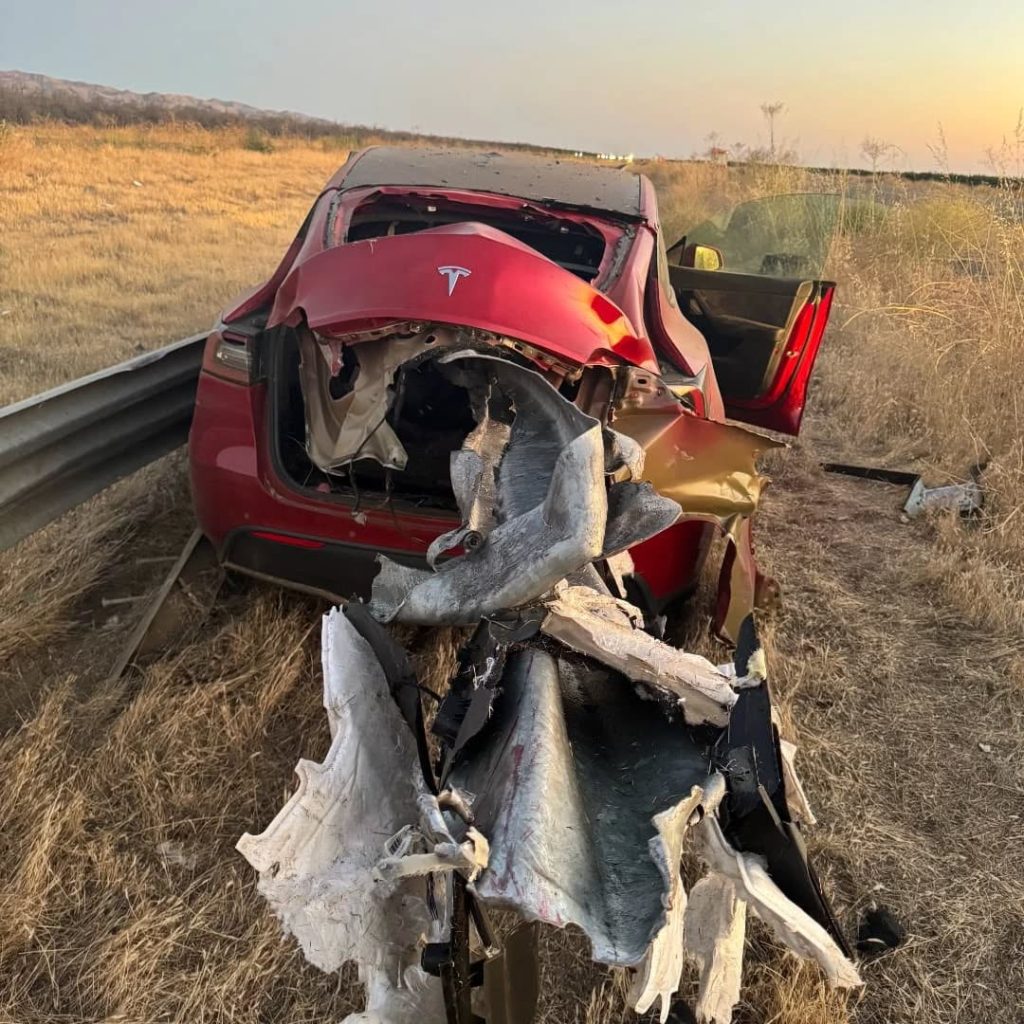
Credit: CHP Los Banos (via Facebook)
In a statement to SFGate, CHP officer Myles Anderson said that the driver only sustained minor injuries, while no arrests are made and drugs and alcohol are not suspected to have been involved. The report also notes that Tesla’s “cruise control and lane assistance features” were activated, according to Anderson. However, it’s not entirely clear if this is referring to Supervised Full Self-Driving (FSD), or to the cruise control and lane assist features baked into Autopilot.
At the time of writing, CHP has not yet responded to Teslarati’s request for clarification and additional details on the matter.
Tesla Crash Safety Ratings across its lineup: pic.twitter.com/ny30R7ceji
— TESLARATI (@Teslarati) July 1, 2025
READ MORE ON TESLA SAFETY: Tesla rolls out crucial new safety feature aimed at saving children
The news comes after Tesla has touted its vehicles as incredibly safe for many years. In December, for example, the company highlighted receiving top safety scores from regulators on four different continents throughout the world, including from the National Highway Traffic Safety Administration (NHTSA) and the Insurance Institute of Highway Safety (IIHS) in the U.S.
Tesla has also listed the goal of making its vehicles the safest on the road throughout the years, both in the overall design of its vehicles and in its Autopilot and Full Self-Driving (FSD) programs.
Tesla Model 3 ranks as the safest new car in Europe for 2025, per Euro NCAP tests
Investor's Corner
Cantor Fitzgerald maintains Tesla (TSLA) ‘Overweight’ rating amid Q2 2025 deliveries
Cantor Fitzgerald is holding firm on its bullish stance for the electric vehicle maker.

Cantor Fitzgerald is holding firm on its bullish stance for Tesla (NASDAQ: TSLA), reiterating its “Overweight” rating and $355 price target amidst the company’s release of its Q2 2025 vehicle delivery and production report.
Tesla delivered 384,122 vehicles in Q2 2025, falling below last year’s Q2 figure of 443,956 units. Despite softer demand in some countries in Europe and ongoing controversies surrounding CEO Elon Musk, the firm maintained its view that Tesla is a long-term growth story in the EV sector.
Tesla’s Q2 results
Among the 384,122 vehicles that Tesla delivered in the second quarter, 373,728 were Model 3 and Model Y. The remaining 10,394 units were attributed to the Model S, Model X, and Cybertruck. Production was largely flat year-over-year at 410,244 units.
In the energy division, Tesla deployed 9.6 GWh of energy storage in Q2, which was above last year’s 9.4 GWh. Overall, Tesla continues to hold a strong position with $95.7 billion in trailing twelve-month revenue and a 17.7% gross margin, as noted in a report from Investing.com.
Tesla’s stock is still volatile
Tesla’s market cap fell to $941 billion on Monday amid volatility that was likely caused in no small part by CEO Elon Musk’s political posts on X over the weekend. Musk has announced that he is forming the America Party to serve as a third option for voters in the United States, a decision that has earned the ire of U.S. President Donald Trump.
Despite Musk’s controversial nature, some analysts remain bullish on TSLA stock. Apart from Cantor Fitzgerald, Canaccord Genuity also reiterated its “Buy” rating on Tesla shares, with the firm highlighting the company’s positive Q2 vehicle deliveries, which exceeded its expectations by 24,000 units. Cannacord also noted that Tesla remains strong in several markets despite its year-over-year decline in deliveries.
News
Tesla Sweden responds to car magazine’s claims that Model 3 has deficient brakes
The company stated that it would be examining the two Model 3s that were used in the magazine’s test.
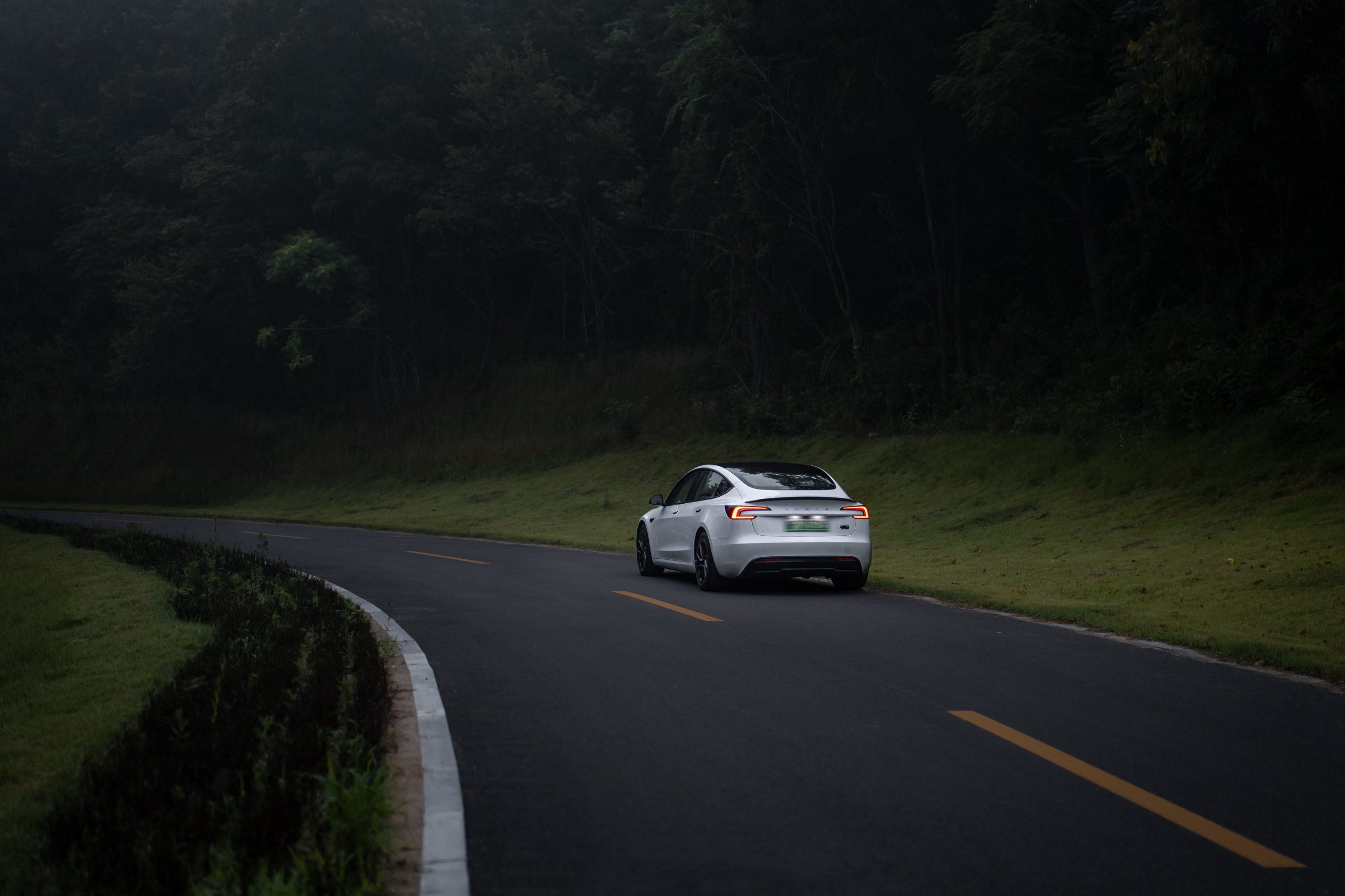
Tesla Sweden has responded to a car magazine’s claims that the new Model 3 sedan has “deficient” brakes. The all-electric sedan was subjected to the publication’s tests, and its braking distance was reportedly found to be lacking.
The car magazine’s tests
As noted in a report from Swedish car magazine Teknikens Värld, the new Model 3 Long Range’s braking distance proved subpar when it was tested, with the vehicle reportedly having a braking distance of a whopping 133.2 feet (40.6 meters). The magazine claimed that it repeated the test with another Model 3, and its results were only 5 feet (1.5 meters) better.
The magazine noted that this was unacceptable since an acceptable braking distance is 124 feet (28 meters), which also happens to be the Model 3’s braking distance when it was tested by Edmunds in the United States. The publication also stated that the Volkswagen ID.7 Tourer, which is equipped with drum brakes at the rear, had a braking distance that’s 16 feet (5 meters) shorter in its tests.
Tesla Sweden’s response
Tesla Sweden responded to the car magazine’s claims, stating that the all-electric sedan’s alleged braking performance was not consistent with the company’s data, nor does it align with the Model 3’s safety ratings. The company also noted that it would be examining the two Model 3s that were used in the magazine’s test.
“In the latest braking tests with Model 3, which were conducted by Teknikens Värld 2021, a braking distance of 36.5 meters was measured for Model 3 RWD and 36.7 meters for Model 3 Long Range AWD, so these results are not recognized or consistent with our internal tests.
“We are examining the two specimens to find out why the braking distances differ. Safety is number one at Tesla. Model 3 comes with all safety features as standard. Independent crash safety organization Euro NCAP recently announced new crash results for cars tested in May 2025. Euro NCAP gives the upgraded Model 3 a 5 out of 5-star safety rating and an overall score of 90%, making Model 3 one of the safest vehicles tested under the latest and most stringent testing protocol ever,” Tesla Sweden stated.
Teknikens Värld digs its heels
While Tesla Sweden has responded to its allegations, the car magazine noted that it will nonetheless stand firm on its claim that the new Model 3 has deficient brakes.
“The fact that the Model 3 previously passed the brake test is not relevant because today’s generation of the Model 3 is to be considered a new generation, as Tesla themselves often point out. Nor is the result in Euro NCAP relevant because they are different tests. We can therefore conclude that Tesla has deficient brakes on the new Model 3. It is good for everyone to know,” the car magazine wrote.
-

 Elon Musk1 week ago
Elon Musk1 week agoTesla investors will be shocked by Jim Cramer’s latest assessment
-

 News2 weeks ago
News2 weeks agoTesla Robotaxi’s biggest challenge seems to be this one thing
-

 News2 weeks ago
News2 weeks agoWatch the first true Tesla Robotaxi intervention by safety monitor
-

 Elon Musk1 week ago
Elon Musk1 week agoA Tesla just delivered itself to a customer autonomously, Elon Musk confirms
-

 News2 weeks ago
News2 weeks agoTesla Robotaxi rollout proves that Elon Musk still delivers, even if it’s late
-

 Elon Musk2 weeks ago
Elon Musk2 weeks agoxAI welcomes Memphis pollution results, environmental groups push back
-
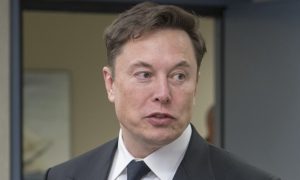
 Elon Musk2 weeks ago
Elon Musk2 weeks agoElon Musk commends Tesla team on successful Robotaxi launch
-

 Elon Musk2 weeks ago
Elon Musk2 weeks agoElon Musk confirms Tesla Optimus V3 already uses Grok voice AI


















